H.E. Professor Arthur Peter Mutharika
His Excellency, The President of the Republic of Malawi
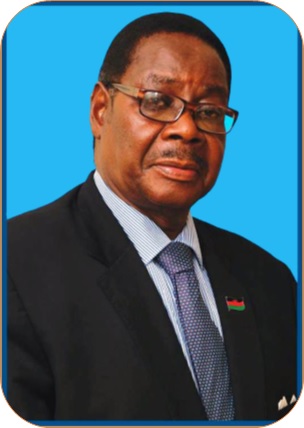
Prof. Mabel Opanda Imbuga,
Vice Chancellor, Jomo Kenyatta University of Agriculture and Technology
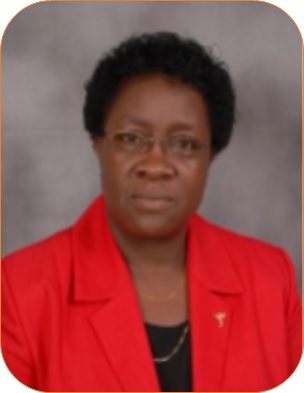 Prof. Mabel Imbuga is the Vice Chancellor of Jomo Kenyatta University of Agriculture and Technology, a public university in Kenya, well known for its leading role in Agriculture, Science, Technology and Innovation in the African Continent. She is a Professor of Biochemistry, with over 35 years of teaching, scholarly and leadership experience. She holds several positions both nationally and internationally, among them, Chairperson Regional Universities Forum for Capacity Building in Agriculture (RUFORUM),
Prof. Mabel Imbuga is the Vice Chancellor of Jomo Kenyatta University of Agriculture and Technology, a public university in Kenya, well known for its leading role in Agriculture, Science, Technology and Innovation in the African Continent. She is a Professor of Biochemistry, with over 35 years of teaching, scholarly and leadership experience. She holds several positions both nationally and internationally, among them, Chairperson Regional Universities Forum for Capacity Building in Agriculture (RUFORUM),
Member of Pan African University Council, Chairperson Kenya University and Colleges Placement Board, Board Member Kenya Agricultural and Livestock Research Organization (KALRO), Commissioner- Commission for University Education (CUE)-Kenya, Board Member Universities, Business and Research in Agricultural Innovation (UniBRAIN), Jury member L’Oréal for Women in Science (FWIS), Scientific Elder, (IDRC), Immediate former Chairperson of Inter University Council for Eastern
Africa, Immediate former chairperson of Vice Chancellors Committee- Public Universities Kenya, and Director International Network of Women Engineers and Scientists representing Anglophone Africa.
Prof Imbuga is a member of several professional associations across the world, a former president and founder of the African Women in Science and Engineering (AWSE); immediate former Director of International Network of Women Engineers and Scientists ; Member, Global Consortium of Higher Education and Research for Agriculture (GCHERA) and member, International Conference of Women Engineers and Scientists (ICWES) and Research Scientist- ICIPE.
Prof. Imbuga has extensive knowledge and demonstrative experience in the higher education system, having scaled the ranks from technical roles starting as Assistant Lecturer, to leadership roles a Chairperson of Department, Dean, Director and Deputy Vice Chancellor in charge of Academic affairs before she took on her current appointment .
Imbuga is a key resource in strategic management and leadership, with an MBA in strategic management. She is a Pan Africanist and a key reformer in the higher education setup in Africa, having successfully driven a number of key projects, including strengthening the higher education stakeholder relations in Africa and the recent launch of Pan African University Institute hub of Basic Science Technology and Innovation (PAUSTI), housed in JKUAT, Kenya. She is a mover and doer of successful African projects in higher education, resulting in increased access and transformation of the higher education. She has participated in various forums and key Government seminars as a motivational speaker for upcoming leaders and scientists. Imbuga has over 10 funded projects and several publications. She has attracted international funding for various projects cutting across various disciplines.
Hon. Emmanuel Fabiano
Malawi Minister of Foreign Affairs,
 Dr Emmanuel Fabiano, Malawi’s Minister of Foreign Affairs and International Cooperarion is also a Member of Parliament.
Dr Emmanuel Fabiano, Malawi’s Minister of Foreign Affairs and International Cooperarion is also a Member of Parliament.
Initially trained as a science teacher at the University of Malawi, he went on to specialise in Chemistry when he later read for his Masters at the University of Warwick, where he also produced a dissertation on Science Curriculum Development for a Developing Country. Dr Fabiano went on to acquire his doctorate from the University of New Castle Upon Tyne in 1986.
He has worked in academic institutions first as a Chemistry lecturer and then on to head University of Malawi’s Chancellor College’s Chemistry Department. He rose through the ranks to become College Principal and then from 2009 to 2013 he served as Vice Chancellor of the University of Malawi.
He has vast managerial experience and has also served on several boards including Malawi Institute of Education, Malawi Bureau of Standards, Forum for African Women Educationalists in Malawi -FAWEMA, Wildlife and Environmental Society and Malawi National Examinations Board, which he chaired.
Dr Fabiano is well published in the fields of science and technology. The Honourable Minister is a recipient of the Education Leadership Award from the Global Awards for Excellence in Education, Leadership and Teaching.
He is married and has five children.
Minister of Agriculture, Irrigation and Water Development
Hon. Joseph Mwanamveka, MP
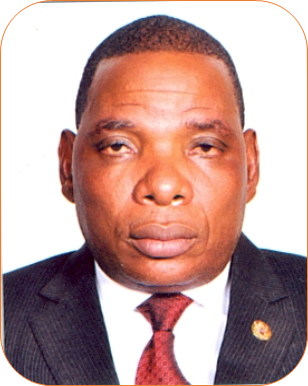 Effective 16th July, 2017, Honourable Joseph Mwanamvekha became Minister of Agriculture, Irrigation and Water Development from being Minister of Industry and Trade in June.
Effective 16th July, 2017, Honourable Joseph Mwanamvekha became Minister of Agriculture, Irrigation and Water Development from being Minister of Industry and Trade in June.
Prior to becoming a Member of Parliament, Honourable Joseph Mwanamvekha had served in various capacities in the financial sector before being appointed Managing Director and Chief Executive Officer for Continental Discount House Limited in February, 2005. In March 2007, he was appointed Managing Director of Malawi Savings Bank which is the third largest Commercial Bank in Malawi. This appointment culminated into him being seconded as Secretary to the Treasury in the Ministry of Finance and Development Planning.
During that period, he successfully, chaired the Task Force of Permanent Secretaries in the Eastern and Southern Africa Anti-Money Laundering Group (ESAAMLG). He also successfully chaired the African Union (AU) Group of Permanent Secretaries and also served as Alternate Governor of the International Monetary Fund (IMF) and ex-officio Board Member for almost all Government parastatal organizations and statutory corporations by virtue of being Secretary to the Treasury. Academically, he holds a Master of Arts Degree in Economics (Monetary Economics) from the University of Malawi and has attained numerous professional qualifications in areas of Treasury Management, Securities Trading, Asset and Liability Management, Leadership, and Negotiations
Hon. Bright Msaka, MP
Minister of Education, Science and Technology, Malawi
 Hon Bright Msaka, SC, was appointed Minister of Education, Science and Technology of the Republic of Malawi on the 16th of July, 2017 after having served as Minister of Natural Resources, Energy and Mining from 10th April, 2015.
Hon Bright Msaka, SC, was appointed Minister of Education, Science and Technology of the Republic of Malawi on the 16th of July, 2017 after having served as Minister of Natural Resources, Energy and Mining from 10th April, 2015.
Before becoming Minister of Energy, Natural Resources and Energy, Hon. Msaka, SC, served for 10 months as Minister of Lands, Housing and Urban Development.
From 2004 to 2013, Hon. Msaka, SC, was Chief Secretary for the Government of Malawi, and Head of the Malawi Public Service.
Hon. Msaka, SC, served as Malawi’s High Commissioner to the United Kingdom from 1998 to 2003, with simultaneous accreditation as Ambassador to Norway, Sweden, Denmark, Finland, Portugal and Iceland.
From 1994 to 1998, Hon. Msaka, SC, was Malawi’s High Commissioner to Canada.
Hon. Bright Msaka, SC, is a Lawyer with the Status of Senior Counsel. During his career as a Lawyer in private practice, Hon. Bright Msaka, SC, also acted as Examiner of Company Law, Law Lecturer at the University of Malawi, and as a Notary Public
Prof. Ehile Etienne,
Secretary General, Association of African Universities

Professor Etienne Ehilé is an Ivorian National and a renowned physiologist. He graduated from the faculty of science at the University of Abidjan in 1974, where he obtained his MPhil degree. Then moved to the University of Aix Marseille III (France) where he prepared and defended his Doctorate Degree (PhD) in Neurophysiology with highest honours in 1978. His research works were conducted at the Neurophysiology laboratory of National Scientific Research Centre (CNRS), France.
Coming back home he joined the National University of Côte d’Ivoire at Abidjan as a lecturer and researcher at the Faculty of Science. His research works coupled with supervision of young PhD students’ training of the university led to his appointment as senior lecturer by the African and Madagascar Council for Higher Education (CAMES) and was in 1991 admitted to the rank of full professor with accreditation from CAMES.
From 1992 to date, Prof Ehilé held numerous management and administrative functions in addition to his teaching and research assignments at both national and international levels. Some of the administrative positions he held include (among others): first Director of URES-Daloa (Regional Academic research Unit); Chairman of the Conference of Rectors of Francophone Africa and Indian Ocean Universities (CRUFAOCI); Chairman of the Network for Excellence in Higher Education in West Africa (REESAO); Steering Committee Member of ADEA’s working group on Higher Education (WGHE); Member of Consultative Council of “Agence Universitaire de la Francophonie’’ (AUF) from July 2009 to date; Deputy Minister of Health and Public Hygiene (in 2011). Until his appointment as the Secretary General of AAU, Professor Ehilé was the Chairman of the National Assessment and Evaluation committee of Higher Education and Research institutions in Côte d'Ivoire (CNEESR
Hon. Prof. Bakayoko-Ly Ramata
Minister of Education, Ivory Coast

Professor Bakayoko-Ly Ramata was born on 29 June 1955 in Abidjan. She is of Ivorian nationality, married and mother of three children. In July 1994, she obtained her tenure in odonto-stomatology, a pedodontics-prevention section (cams), after her accreditation in November 1990. In June 1974, she succeeded in the baccalauréat Mathematics and Sciences Series Physics Option C. The new President of the University of Cocody has won several national and international awards and recognitions such as the Henri Konan Bédié Award for Best Teacher in Dentistry and Stomatology in 1994.
At the time of her appointment at the head of the Minister of Higher Education and Scientific Research, Professor Bakayoko-Ly Ramata was the president of the Félix Houphouet-Boigny University in Abidjan
she is Vice-Chair of the Board of Directors of the Regional Center for Health Evaluation and Accreditation of Health Institutions in Africa and a member of many bodies such as the Scientific Council of the University Agency the Francophonie (Auf) and the National Academy of Dental Surgery of France. Ly Ramata is Chair of the Scientific Commission of the International Institute of Water and Environment (2iE) and Chair of the Odonto-Stomatology Section Jury of Medicine, Pharmacy, Odonto-Stomatology, Medicine veterinary and animal products of the Cam (2004, 2006, 2008, 2010). It has contributed in the shadow to the development of the reform of higher education which aims for a 2012 breakthrough.
Prof. Adipala Ekwamu
Executive Secretary, Regional Universities Forum for Capacity Building in Agriculture (RUFORUM)
 Prof. Adipala Ekwamu is the Executive Secretary of the Regional Universities Forum for Capacity Building in Agriculture (RUFORUM), a consortium of 60 African Universities that provides research and postgraduate training opportunities for students and faculties in Africa. He provides overall leadership in the running of the RUFORUM Secretariat. Since his appointment in 2004, he has transformed RUFORUM from a member based organisation of 10 Universities in five countries in Eastern and Southern Africa, to now an Africa-wide consortium of 60 universities in 25 countries. Under his leadership, RUFORUM has supported the training of over 1,500 MSc and 350 PhD students that are working across Africa. He has teamed up with several higher education networks both within and outside Africa to advocate for higher education in Africa, and has helped to establish and strengthen postgraduate training programs and academic mobility programmes for students and faculty across Africa. Prof. Adipala Ekwamu is the founding editor of the African Crop Science Journal, and author of 200 peer reviewed journal publications.
Prof. Adipala Ekwamu is the Executive Secretary of the Regional Universities Forum for Capacity Building in Agriculture (RUFORUM), a consortium of 60 African Universities that provides research and postgraduate training opportunities for students and faculties in Africa. He provides overall leadership in the running of the RUFORUM Secretariat. Since his appointment in 2004, he has transformed RUFORUM from a member based organisation of 10 Universities in five countries in Eastern and Southern Africa, to now an Africa-wide consortium of 60 universities in 25 countries. Under his leadership, RUFORUM has supported the training of over 1,500 MSc and 350 PhD students that are working across Africa. He has teamed up with several higher education networks both within and outside Africa to advocate for higher education in Africa, and has helped to establish and strengthen postgraduate training programs and academic mobility programmes for students and faculty across Africa. Prof. Adipala Ekwamu is the founding editor of the African Crop Science Journal, and author of 200 peer reviewed journal publications.
He founded the African Crop Science Society in 1993, which is today one of the most respected professional societies in Africa. He also helped to found the African Journal of Rural Development which released its first two issues in 2016. He received his Doctoral Degree in Plant Pathology from The Ohio State University in 1992, and taught in the Department of Crop Science at Uganda's Makerere University from 1980 to 2003. In 2010, Prof. Adipala Ekwamu earned the Ohio State University College of Food, Agricultural, and Environmental Sciences International Alumni Award.
He is a Fellow of Uganda National Academy of Sciences. Away from higher education, Prof. Adipala engages in community development activities and has built a school that currently supports close to 1000 primary school students in his home district. He has also launched a secondary school, in the same community, as part of efforts to increase access to quality basic education for marginalised rural communities in Uganda.
Dr. Yemi Akinbamijo,
Executive Director, Forum for Agricultural Research in Africa (FARA)
 Dr. Yemi Akinbamijo is an expert in agricultural research for development. A Nigerian national, he has spent the past three decades of his career in Africa and Europe working in the domains of international agriculture, food and nutrition security, natural resource management including crop-livestock integrated systems, market-oriented production systems, regional value chains, urban agriculture and land use management, sustainable agriculture and climate change adaptation.
Dr. Yemi Akinbamijo is an expert in agricultural research for development. A Nigerian national, he has spent the past three decades of his career in Africa and Europe working in the domains of international agriculture, food and nutrition security, natural resource management including crop-livestock integrated systems, market-oriented production systems, regional value chains, urban agriculture and land use management, sustainable agriculture and climate change adaptation.
Dr. Akinbamijo is a strong analytical and strategic thinker. He is an active contributor to the global discourse on strategies for attaining a sustainable and inclusive agricultural transformation. He is also a consummate networker who is solidly plugged into an extensive community of stakeholders in the African agricultural and rural development landscape, including donors.
Dr. Akinbamijo is widely published in various agricultural disciplines. He is a former editor of the Bulletin of Animal Health and Production in Africa and lead author of the book Crop-livestock Integration in West African cities.
Dr. Kamau-Rutenberg Director,
African Women in Agricultural Research and Development (AWARD)
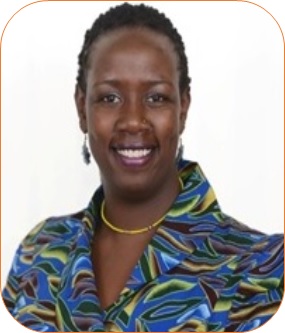 Through its investments in Africa’s leading women agricultural scientists, AWARD serves as a catalyst for innovations with high potential to contribute to the prosperity and well-being of African smallholder farmers.
Through its investments in Africa’s leading women agricultural scientists, AWARD serves as a catalyst for innovations with high potential to contribute to the prosperity and well-being of African smallholder farmers.
Dr. Wanjiru Kamau-Rutenberg has received widespread recognition for her work investing in women, including being honored as a White House Champion of Change, named one of the 100 Most Influential Africans by New African magazine, recognized as a Ford Foundation Champion of Democracy, awarded the United Nations Intercultural Innovation Award, and named one of Kenya’s Top 40 Women Under Age 40 among others.
Born in Kenya, Dr. Kamau-Rutenberg holds a PhD and a Master’s degree in Political Science from the University of Minnesota, a Bachelor of Arts degree in Politics from Whitman College in Washington, U.S.A.
Prior to joining AWARD, Dr. Kamau-Rutenburg founded and served as Executive Director of Akili Dada, an award-winning leadership incubator that invests in high-achieving young women from under-resourced families, who are passionate about driving change in their communities. She also served as an Assistant Professor of Politics at the University of San Francisco and a lecturer in International Relations at the Jesuit Hekima College, a constituent college of the Catholic University of Eastern Africa. Her academic research and teaching interests centered on African politics, gender, international relations, ethnicity, and democratization, and the role of technology in social activism.
Dr. Mercy Karanja
Senior Program Officer/Senior Regional Advisor in Agricultural Development, Bill and Melinda Gates Foundation
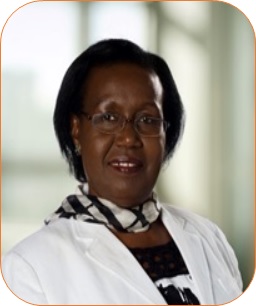 Dr. Mercy Karanja is a Senior Program Officer/Senior Regional Advisor in Agricultural Development at the Bill and Melinda Gates Foundation. In her role as Senior Regional Advisor, she develops and manages investments to strengthen national institutions and systems from the national to local level to ensure enhanced service delivery to small holder farmers.
Dr. Mercy Karanja is a Senior Program Officer/Senior Regional Advisor in Agricultural Development at the Bill and Melinda Gates Foundation. In her role as Senior Regional Advisor, she develops and manages investments to strengthen national institutions and systems from the national to local level to ensure enhanced service delivery to small holder farmers.
Mercy supports the agriculture team in building in-country relationships that are critical to the success of the Foundation’s work, tracking and monitoring investments to ensure Foundation investments are catalytic and leverage other in-country resources in the sector. She led the establishment of the Agricultural Development Division, part of the Tanzania Presidential Delivery Bureau.
She also develops and manages a portfolio of institutional strengthening investments in extension/farmer organizations and higher education space to respond to and needs of smallholder farmers. Mercy has a diversified management and leadership experience across multiple industries, academia, public, private, non- profit and donor partners. Prior to joining the Foundation in 2008, she was a Global Development Policy Coordinator with the International Federation of Agricultural Producers (IFAP) in Paris.
She served in the Kenya Ministry of Agriculture and Livestock, lectured at Egerton University, was Chief Executive of the Kenya National Federation of Agricultural Producers, and served in many international committees to tackle rural poverty. She received her Bachelor's degree in Agriculture from the University of Nairobi and Post graduate in Extension and Rural Development from Reading University in the United Kingdom. Her passion is to improve the livelihoods of farmers.
Dr. Moses Osiru,
Deputy Executive Secretary, RUFORUM
 Dr. Moses Osiru is RUFORUM’s Deputy Executive Secretary and oversees programming at the RUFORUM Secretariat in Kampala. He has over 15 years’ experience in the agricultural and higher education sectors, including close to ten years within the Consultative Group on International Agricultural Research (CGIAR). As Regional Pathologist with the International Crops Research Institute for the Semi-Arid Tropics (ICRISAT), Moses supported small holder farmers to improve groundnut production and marketing, including through mitigating aflatoxin contamination in groundnut in Burkina Faso, Niger, Nigeria, Senegal, and Ghana (based in Bamako, Mali) and in Eastern and Southern Africa (based in Lilongwe, Malawi). Dr. Osiru supported farmers in East and Central Africa to combat Banana Xanthomonas Wilt and other banana diseases through research and development activities at Bioversity and its BARNESA network in East and Central Africa. During his time with the Ministry of Agriculture (PMA Secretariat, NARS Secretariat) in Uganda, Dr. Osiru participated in the review and reform of agricultural research in Uganda that led to the new agricultural research policy in 2004. He led the development of ECOWAS’s Strategy and Action Plan for the Control of aflatoxins in West and Central Africa and a needs assessment for African agricultural research and training institutions to enhance collaboration with Brazil. Moses continues to teach plant pathology related courses at Makerere University.
Dr. Moses Osiru is RUFORUM’s Deputy Executive Secretary and oversees programming at the RUFORUM Secretariat in Kampala. He has over 15 years’ experience in the agricultural and higher education sectors, including close to ten years within the Consultative Group on International Agricultural Research (CGIAR). As Regional Pathologist with the International Crops Research Institute for the Semi-Arid Tropics (ICRISAT), Moses supported small holder farmers to improve groundnut production and marketing, including through mitigating aflatoxin contamination in groundnut in Burkina Faso, Niger, Nigeria, Senegal, and Ghana (based in Bamako, Mali) and in Eastern and Southern Africa (based in Lilongwe, Malawi). Dr. Osiru supported farmers in East and Central Africa to combat Banana Xanthomonas Wilt and other banana diseases through research and development activities at Bioversity and its BARNESA network in East and Central Africa. During his time with the Ministry of Agriculture (PMA Secretariat, NARS Secretariat) in Uganda, Dr. Osiru participated in the review and reform of agricultural research in Uganda that led to the new agricultural research policy in 2004. He led the development of ECOWAS’s Strategy and Action Plan for the Control of aflatoxins in West and Central Africa and a needs assessment for African agricultural research and training institutions to enhance collaboration with Brazil. Moses continues to teach plant pathology related courses at Makerere University.
Dr. Osiru currently serves on various Boards and Steering Committees including the African Crop Science Society; the International Network for Higher Education in Africa (INHEA), the Global Confederation of Higher Education Associations (GCHERA), the Swedish Agriculture for Food Security 2030 Initiative (AgriFose) and the Acacia International School. He also sits on editorial boards of various Journals, including the Journal of Phytology [ISSN: 2075-6240]. He was a member of the Founding Steering Group of the African Forum on Agricultural Advisory Services (AFAAS).
Dr. Osiru holds a PhD in Agriculture (Plant Pathology) and MSc (Plant Breeding/ Pathology) from Makerere University. He has over 30 research publications, four of which are book chapters.
Daniel T. Gustafson, PhD
Deputy Director General, FAO

Daniel Gustafson, a US citizen, holds a Bachelor of Science in Economics and International Relations and an Master of Sciences in Agricultural Economics, both from the University of Wisconsin and a Ph.D in agricultural extension from the University of Maryland. He started his career at the InterAmerican Institute for Cooperation on Agriculture (IICA). He was based in Brazil from 1977-1988, working in support of Brazil’s agricultural research and extension programmes. He moved to the University of Maryland in 1988 where he worked in the International Development Management Centre, linked to the Maryland Cooperative Extension Service, as Programme Director, responsible for developing and implementing project activities, institutional development and policy implementation in agriculture and natural resources
He joined FAO in 1994, working on a project based in the National Department of Rural Development and Extension in the Ministry of Agriculture in Maputo, Mozambique. He was appointed FAO Country representative in Kenya in 1998, which also included responsibility for FAO’s programmes in Somalia, and FAO’s Country Representative in India an Bhutan in 2002. From December 2007, he was Director of FAO’s Liaison office for the US and Canada, based in Washington D.C. The Liaison Office facilitates communication and cooperation between FAO and the Governments of Canada and the United States, and between FAO and the World Bank and other international and inter-American organizations based in Washington, and with universities, civil society and the private sector.
In February 2012, he was appointed Director of FAO’s Office of Support to Decentralization (OSD), based at FAO headquarters in Rome, Italy. Since then, he has led the Organization’s ongoing efforts to strengthen FAO’s country and regional offices, with a particular emphasis on the leadership of FAO’s country offices. More broadly, he has supported the decentralization-related aspects of FAO’s ongoing transformative process. In addition to his leadership of OSD Division, in October 2012, he was temporarily appointed Officer-in-Charge of the Corporate Services, Human Resources and Finance Department.
Her Excellency Josefa Leonel Correia Sacko
Department of Rural Economy and Agriculture, African Union Commission
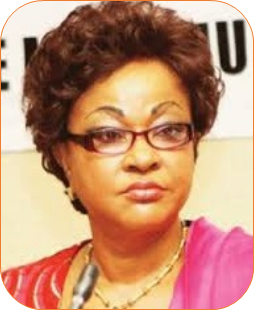
Madam Josefa Sacko, an Angolan National, is a leading African Agronomist. On the 23rd of December 2016, Madame Sacko was nominated as Executive Administrator on the Administrative Council of the Funds for Agriculture Development.
She is Special Adviser to the Angolan Minister of Environment where she also serves as Ambassador responsive for climate change and in the Department of the Minister of Agriculture, Madam Sacko oversees food security, Eradication of Hunger and Poverty Reduction.
Madam Josefa ran the Inter-African coffee organization (IACO) for 13 years in Côte D’ Ivoire where she represented coffee economy of 25 Africa Coffee producing countries. The Former Secretary General of the Inter-African Coffee Organization (IACO) is also special Adviser to the Vice-President of The Panafrican Woman Organization for Southern African Region. She also worked as a consultant in National Angolan Investment Agency (ANIP)
Dr. Jennifer Blanke
AfDB Vice President

Jennifer Blanke is Vice President for Agriculture, Human and Social Development at the African Development Bank (AfDB). The American-Swiss citizen, who joined the Bank earlier this year, is a renowned and globally respected development economist.
With more than twenty years of experience, she is the primary responsible for carrying out two of AfDB's five strategic priorities (the High 5s): Feed Africaand Improve the Quality of Life of People in Africa through the departments she oversees (Agriculture and Agro-industry; Agricultural Finance and Rural Development; Water and Sanitation; Gender and Civil Society; Human Capital, Youth and Social Development). With her teams, Jennifer aims to make Africa a net food exporter by 2025, create 25 million jobs, and train 32 million young people over the next ten years.
Before joining the AfDB, she was Chief Economist and member of the Executive Committee of the World Economic Forum, Switzerland, where she provided global leadership on economic and development issues. During her 18-year career at the World Economic Forum, other roles held included Lead Economist and Head of the Global Competitiveness and Benchmarking team, and Senior Programme Manager responsible for developing the business, management, and technology sections of the Annual Meeting in Davos.
Prior to joining the World Economic Forum, Jennifer worked as a management consultant for Eurogroup (Mazars Group) in Paris, France, where she specialized in banking and financial market organization.
She brings to the AfDB a diverse wealth of knowledge and experience on economic, human and social development, private sector and public-private partnerships. She is globally respected for her works on how to support countries to drive greater economic competitiveness and reduce the cost of doing business and has led the development of the Global Competitiveness Report and the Africa Competitiveness Report. She has worked extensively on Africa and has served as a respected advisor to several governments on economic, human and social development issues to reduce growth inequalities. She is presently member of the Canadian government’s Council of Economic Growth and holds a number of non-executive board responsibilities in the not-for-profit sector.
She has written and lectured extensively on issues related to national competitiveness and has edited a number of competitiveness reports, with a particular regional focus on Western Europe and sub-Saharan Africa.
She holds a Master’s degree in International Affairs from Columbia University, New York, and an MA and PhD in International Economics from the Graduate Institute of International Studies, Geneva. She speaks French, English and Spanish. She is married and has two children
Dr. Juergen Voegele
Senior Director, Agriculture Global Practice
 Juergen Voegele, Ph. D., was appointed Senior Director of the World Bank's Agriculture Global Practice on July 1, 2014.
Juergen Voegele, Ph. D., was appointed Senior Director of the World Bank's Agriculture Global Practice on July 1, 2014.
Prior to this appointment, he was the Director of the World Bank's Agriculture and Environmental Services Department. In this role, he provided leadership on the Bank’s activities across sustainable landscapes and oceanscapes, agriculture and environmental economic policy, and risk management and markets.
Since joining the World Bank in 1991, Dr. Voegele has held a number of assignments, chairing the Agriculture and Rural Development Sector Board as well as the Environment Sector Board, leading the Agriculture Unit in China and the Agriculture and Rural Development Unit of the Europe and Central Asia Region.
In 2008, Dr. Voegele was appointed Director of the Agriculture and Rural Development Department of the World Bank and oversaw global programs for rural poverty alleviation, and agriculture and natural resources management.
Hon George Kronnisanyon Werner
Minister of Education, Liberia

George Kronnisanyon Werner is the Minister of Education of the Republic of Liberia. In his commitment to rebuild Liberia’s education system, Werner used his experience as a high school teacher in five countries including Liberia and the U.S., to address the twin challenges of expanding access to education and improving the quality of teaching.
Under his leadership, the ministry has implemented stepping stone programs, among them, the internationally acclaimed Getting to Best Reform along with pay and pension reform (which rationalizes salaries, mobile money payment systems, among others), capacity building, and performance management reform.
In 2016, Werner continued his bold agenda in what turned out to be a great year for the education sector. The ministry made significant savings of $2.25 million, which were recovered from removing ghosts’ teachers as a result of vetting 65% of the ministry’s 15,000-teacher workforce. The recovered funds proved significant in the inclusion of voluntary teachers and the addition of a support partnership program. The Partnership Schools of Liberia initiative became a reality, championed by Werner to leverage the management expertise of the private sector in operating government schools, as part of proposed solutions to stimulate education in Liberia.
A former Director General of the Civil Service Agency (June 2013 to May 2015), Werner was an instrumental figure in implementing the Public Sector Modernization Project whose $11.5 million funding from the World Bank, SIDA, and USAID fundamentally backed the reform of the entire civil service.
In 2014, Werner set up critical solutions to curb the deadly Ebola virus. Using his background in health care studies from St. Joseph University in Philadelphia, he implemented policies and travel sanctions to decongest workspaces and lower the risk of contracting the virus.
Meanwhile, regardless of the state of emergency, Werner ensured that civil servant payments continued. Furthermore, death benefits were paid to families of healthcare workers affected in the line of duty.
Werner is the current chair of the Government of Liberia’s Inter-Ministerial Scholarships Committee, a post he has held since 2011. Additionally, he is the co-chair of Liberia’s Health Workforce Development Taskforce and a member of the board of directors of Liberia’s largest public hospital, John F. Kennedy Memorial Hospital.
Werner received a master’s degree in social work from the the University of Pennsylvania and a Bachelors of Arts in General Education with Religious Studies from Marist College, now the Catholic University of East Africa, Nairobi, Kenya.
He served as a research fellow in Leadership Education in Neurodevelopmental Disabilities at the Children’s Hospital of Philadelphia, Pennsylvania, won a travel award for Open Mind for Africa Program, and was given the John Hope Franklin Combating American Racism Award
Prof George Kanyama-Phiri
Vice Chancellor Lilongwe University of Agriculture and Natural Resources and RUFORUM Vice Board Chair

Professor George Yobe Kanyama-Phiri was born on 22 November, 1948 at Chisazima Village, in the area of Senior Chief Kaomba in the Central Region District of Kasungu, Malawi. He has Diploma, BS, MS and PhD certificates from Egerton University, Florida A&M University, University of California at Davis and Texas A&M University at College Station in Texas, respectively.
Professor Kanyama-Phiri advanced to the grade of Full Professor of Crop Science in 2001. He has 31 articles in refereed journals, 20 in conference proceedings, 10 in research bulletins and 15 in technical bulletins. In addition, Professor Kanyama-Phiri has 4 book chapter contributions and 3 monographs. He was given a Freshman Academic Scholarship Award and Alpha kappa MU Academic Honour in 1978. In the same year, he was included in the 44th Edition of who is who among Students in American Universities and Colleges for outstanding undergraduate performance. In the year 2000 the International Biographical Centre, Cambridge, England, included him among 2000 outstanding intellectuals of the 21st Century Order of Excellence for his outstanding contributions in the Field of Agronomy and Agro-forestry. In the following year he was recognised by the American Biographical Institute as being among the great minds of the 21st Century.
Professor Kanyama-Phiri has held numerous positions including the following: Principal of Bunda College (April 1, 2000 to November 22, 2008); Chairman of the Malawi Human Rights Commission (2002 to 2005); Chairman of the Board of Directors for Initiative for the Development and Equity in African Agriculture (2002 to present); Chairman of ADMARC Board of Directors (2006 to 2010); Chairman of the University of Malawi Deans Committee (1995 to 2000); Chairman of SADC University Deans of Agriculture Committee (1995-1996); Chairman of council for Exploits University (2010 to present); National Coordinator for the Green Belt Initiative (1 June, 2010 to 30 November, 2012); Vice Chairman of the National Commission for Science and Technology (NCST, 2010 to 2014); Chairman of Quality Assurance and Accreditation Committee (QUACC, 2014 to present); Vice Chairman of the Board of the School of Agriculture for Family Independence (SAFI, 2008 to present); Vice Chairman of the Board for Children’s Brighter Future CBF, 2013 to present); Vice Chancellor for Lilongwe University of Agriculture and Natural Resources (LUANAR, 20 October, 2012 to present) and Vice Board Chairman for Regional Universities Forum for Capacity Building in Agriculture (RUFORUM, 29 August, 2015 to present).
Professor George Kanyama-Phiri has been actively involved as principal investigator of numerous research projects including the following: Pasture and fodder production and utilization – funded by the International Foundation for Science; Introduction and screening Sesbania in Malawi – funded by ILCA/IDR; Utilization of Sesbania as a protein supplement for goats – funded by the Natural Resource Institute (NRI); Inter-network collaboration on the evaluation of Pennisetum Napier and hybrids – funded by the African Feed Resources Network (AFRNET); Farmer participatory research in agro-forestry – funded by the Forum on Agricultural Resource Husbandry, The Rockefeller Foundation; A comparative study of improved fallows with existing and introduced agro-forestry technologies in Southern Africa. Funded by the Rockefeller Foundation; Legume Best bets to Acquire Nitrogen and Phosphorous and Improve Family Nutrition. Funded by the McKnight Foundation; Legume Best Bets in a Changing World. Funded by McKnight Foundation; Building Food Security and Social Resilience to Climate Change: Farmer Participatory Research on Agro-ecological adaptation to Environmental Change and HIV/AIDS in Malawi- Funded by International Development Research Centre (IDRC); and Basic Research to Enable Agricultural Development.(BREAD)- Funded by Gates Foundation. Currently he is Principal investigator of an ongoing project entitled Upscaling best fit Maize-legume systems through multi environmental trials and farmer research networks. Several students have been internally and externally supervised and examined at the Bachelor, Master and Doctorate of Science degree levels. Professor Kanyama-Phiri has also conducted some consultancies. He is a member of several organisations including the following: Association for the advancement of Science and Technology and Environment (AASTOM); American Society of Agronomy; MICERN Journal of Applied Microbiology and Biotechnology; American Forage and Grassland Council; National Livestock Development Committee; African Feed Resources Network; Grassland Society of Southern Africa; and Association of Commonwealth Universities.
Professor John Danwell Kalenga Saka
Vice Chancellor, University of Malawi
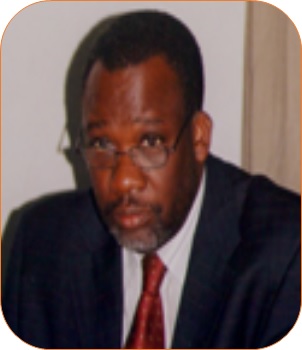
Born and raised in Malawi, Prof Saka gained his BSc (distinction) in 1980 and BSc Hons (First Class) in 1981 from Chancellor College, University of Malawi. He studied for a PhD (Studies in 1, 2, 3 triazine chemistry) which he completed in 1985 from the University of East Anglia. On completion of his PhD, he joined the Chemistry department at University of Malawi as a lecturer in Physical Chemistry in 1986, and was later appointed Senior Lecturer in Chemistry in 1992, and Associate Professor in 195. He became full professor in 2002.
Prof Saka is a chemist with research interests in utilization and commercialisation of natural resources for household incomes, improved health and nutrition. He has led and undertaken various research projects into utilization, processing and marketing of cassava and miombo indigenous fruit trees. Presently, Prof Saka is the principal investigator of projects related to (i) processing and marketing of high quality and safe cassava flour obtaining in Malawi, (ii) genetics and chemistry (including starch chemistry) of tropical root and tuber crops in Malawi, (iii) processing, product development and marketing of high value products from indigenous fruits in Malawi and (iv) capacity building in water sciences for monitoring and management of water resources. These projects include a component of postgraduate training which contributes to human capital development in basic and applied chemistry. He has also supervised more than twenty MSc and PhD students. Prof Saka serves as external examiner to the MSc programme in the Faculty of Chemical and Civil Engineering at the University of Dar es Salaam.
Prof Saka is actively involved in project development and implementation. He has over 20 years experience in executing individual and group research with scientists of different disciplines from within Africa and beyond. His professional experience ranges from Head of Chemistry at Chancellor College, the Director of Industrial Consultancy Unit, Dean of Science, University of Malawi. He has chaired, and facilitated several committees, centres, and boards at national and international levels. Prof Saka has published over twenty papers in international, regional and national refereed scientific journals. He is chairperson of the Malawi energy Regulatory Authority Board and was recently elected chair of the African Network for Agriculture, Natural Resources and Agroforestry Education (ANAFE).
Globally, Prof Saka is one of the lead authors of Chapter 2: Stationary Combustion of the Volume 2- Energy of the 2006 GHG Guidelines. Prof Saka participated in the Joint ACCENT/GEIA workshop on anthropogenic emissions for non-OECD countries in global inventories. He is now a taskforce member and represents Africa for this component. Prof Saka is married to Linda Kumwenda and they have six children and two dependents, aged between 9 and 28 years. his hobbies include jogging and sightseeing.
Dr Solange Uwituze
RUFORUM Manager for Partnership and Business Administration

Dr. Solange Uwituze is the Programme Manager for Partnerships and Business Management at the RUFORUM Secretariat. She previously served as the Programme Manager for Training and Quality Assurance at the same Organisation. Prior to joining RUFORUM, she served as a Lecturer and Dean of the Faculty of Agriculture – National University of Rwanda.
Dr. Uwituze is well published in the area of beef cattle nutrition and to a lesser extent the dairy sector. She has successfully led development of multimillion US Dollar projects and has extensive experience in leadership and management of various multilateral Capacity Building projects. Dr Uwituze is a Founding Fellow of the Rwanda Academy of Science
Ms. Nakyobe Judith,
RUFORUM Finance and Administration Manager
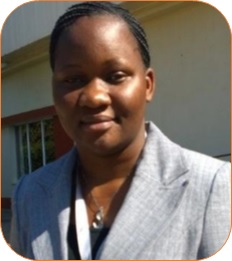
Ms. Judith Nakyobe is the Finance and Administration Manager at the RUFORUM Secretariat. She joined the Secretariat in 2013 and previously served as the Management Accountant at the Secretariat. Judith holds a BSc in Computer Science and is a Chartered Accountant with full membership to the Association of Chartered Certified Accountants (ACCA) and Institute of Certified Public Accountants of Uganda (ICPAU). Judith has led the implementation of the computerized RUFORUM financial management system called NAVISION.
Prior to joining the RUFORUM Secretariat, she served as a Senior Auditor at KPMG in Uganda from 2007 to February 2013. While at KPMG Judith successfully handled audit and other risk advisory services to a wide range of clients in different sectors across East Africa including Public Sector and Development (PSD), Financial Services (FS) and Consumer and Industrial Markets (CIM).
Judith has hands on experience, knowledge, understanding and application of International Financial Reporting Standards (IFRS & IAS) and International Standards on Auditing (ISAs). Judith also has experience in the audit of development aid projects in compliance with donor reporting requiremen
Prof Peter Mbithi,
Vice Chancellor, University of Nairobi, Kenya
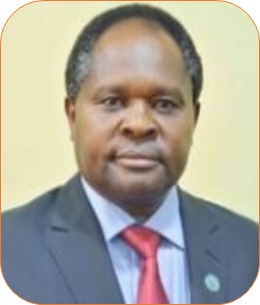 Prof. Peter Mulwa Felix Mbithi is the Vice-Chancellor, at the University of Nairobi and Professor of Veterinary Surgery, University Of Nairobi (UoN). Born in 1956, Prof. Mbithi graduated from the University of Nairobi (UoN) with a Bachelor of Veterinary Medicine (BVM) in 1983 and an MSc. in Clinical Studies in 1985. In 1987, Prof. Mbithi graduated with a Master of Veterinary Science (M.V.Sc. Veterinary Anesthesiology Radiology and Surgery) from University of Saskatchewan, Canada. Between 1986 and 1987, he did a Surgical Residency – Advanced Surgical Specialty Program at the Veterinary Teaching Hospital, Western College of Veterinary Medicine, University of Saskatchewan, Saskatoon, Canada.
Prof. Peter Mulwa Felix Mbithi is the Vice-Chancellor, at the University of Nairobi and Professor of Veterinary Surgery, University Of Nairobi (UoN). Born in 1956, Prof. Mbithi graduated from the University of Nairobi (UoN) with a Bachelor of Veterinary Medicine (BVM) in 1983 and an MSc. in Clinical Studies in 1985. In 1987, Prof. Mbithi graduated with a Master of Veterinary Science (M.V.Sc. Veterinary Anesthesiology Radiology and Surgery) from University of Saskatchewan, Canada. Between 1986 and 1987, he did a Surgical Residency – Advanced Surgical Specialty Program at the Veterinary Teaching Hospital, Western College of Veterinary Medicine, University of Saskatchewan, Saskatoon, Canada.
In 1995, Prof. Mbithi completed his PhD at UoN. Between 1995 and 2003 he was Chairman, Department of Clinical Studies, in 2003 he was elected as the Dean, Faculty of Veterinary Medicine until he was appointed as the Principal, College of Agriculture and Veterinary Sciences in 2004. In 2005 he was competitively appointed as Deputy Vice-Chancellor, Administration and Finance, a position he held until 2015.
He was appointed the Vice Chancellor University of Nairobi January 6, 2015. He has supervised MSc students and PhD students and has published extensively in peer-reviewed journals and is a member of several professional organizations. Clinical veterinary medicine and orthopeadic surgery, wounding and traumatology with special interest in lameness, joint surgery and athritides are some of Prof. Mbithi research interests.
Prof. William Ampiah-Ghartey,
Vice Chancellor, University of Cape Coast, Ghana

Prof. Joseph Ghartey Ampiah is a Professor of Science Education at the University of Cape Coast. He has been a professional teacher for the past 29 years and has taught courses in science education, qualitative research and ethnographic research in science education. Until his appointment, Prof. Joseph Ghartey Ampiah was the Provost of the College of Education Studies.
Prof. Joseph Ghartey Ampiah holds a B.Sc (Hons) in Chemistry and a Diploma in Education (1987), MPhil (Science Education) (1995), and a Ph.D. in Science Education (2002) from the University of Cape Coast. He was promoted to the rank of Associate Professor in 2007 and became a Full Professor in 2010. He has risen through the ranks serving as Coordinator, Centre for Research into Quality of Primary Education (CRIQPEG) (2006-2010), Head of Department of Science and Mathematics Education (2008-2010), Dean, Faculty of Education (2010-2014), Acting Pro-Vice-Chancellor, 2012 and Provost, College of Education Studies (2014 -2016) of the University of Cape Coast. Prof. Joseph Ghartey Ampiah was Visiting Research Fellow, Sussex School of Education, University of Sussex, UK in 2003 and 2005.
He was Visiting Professor at the Centre for the Study of International Cooperation in Education (CICE), Hiroshima University, Japan in 2006 and Research Fellow at the same Centre from 2007-2009. He was appointed Uniterra Internship Coordinator by the World University Services of Canada in 2008. In 2011, he was Visiting Professor, Nagoya University, Japan. He was Famous Overseas Scholar in Hunan City University, China in 2012. Also, in 2012 he was Australian Leadership Award Fellow to the University of Sydney, Australia.
He was an International Advisory Board member of Compare-A Journal of Comparative and International Education from 2010-2015 and Editorial Consultant, AFTRA Journal of Teaching and Learning in Africa. He is a member of the Ghana Chemical Society; The Ghana Science Association, and The British Association for International and Comparative Education. He was a member of the National Teaching Council (2012-2015) and is currently a member of the National Council on Tertiary Education and Chairman of the National Accreditation Board in Ghana. He is an astute researcher of international repute with proven knowledge and experience in university management and administration. Prof. Joseph Ghartey Ampiah is married to Mrs. Regina Ama Ampiah and they have two children.
Dr Carolyn Glynn
AGRINATURA , President
 Carolyn Glynn, is President-elect Agrinatura 2017 – 2020. She works as Senior Research Advisor for SLU Global, Agricultural Sciences for Global Development and as a senior researcher at the Department of Crop Production Ecology
Carolyn Glynn, is President-elect Agrinatura 2017 – 2020. She works as Senior Research Advisor for SLU Global, Agricultural Sciences for Global Development and as a senior researcher at the Department of Crop Production Ecology
AGM 2017 Count Down
Next AGM 2018
The 6th African Higher Education Week
22nd - 26th October, 2018
University of Nairobi
KICC, Nairobi Kenya
Contacts
For general information about the AGM 2017 Conference, including registration. Please contact us at :
 Secretariat@ruforum.org
Secretariat@ruforum.org






